On June 10…
“The wrongs which we seek to condemn and punish have been so calculated, so malignant, and so devastating, that civilization cannot tolerate their being ignored, because it cannot survive their being repeated.”
~Supreme Court Justice Robert H. Jackson
Chief American Prosecutor at Nuremberg
“In keeping silent about evil, in burying it so deep within us that no sign of it appears on the surface, we are implanting it, and it will rise up a thousand fold in the future. When we neither punish nor reproach evildoers, we are not simply protecting their trivial old age, we are thereby ripping the foundations of justice from beneath new generations.”
~Aleksandr Solzhenitsyn

The events from this date in history rank among the cruelest examples of what human beings can do to each other. I am advising you NOW that some of what you are about to read is very disturbing.
But to ignore it would be wrong. I can’t pretend it never happened. As Solzhenitsyn said, “keeping silent about evil” would be an injustice to the thousands who suffered on this date, and yes, the millions more who suffered during the entire Nazi era.

1692 – Bridget Bishop, the first colonist to be tried in the Salem witch trials, was hanged after being found guilty of the practice of witchcraft.
Bishop, accused of witchcraft by more individuals than any other defendant, was known for her “dubious” moral character, which included frequenting a tavern, dressing flamboyantly (by Puritan standards), and being married three times.
She professed her innocence (“I am no witch. I am innocent. I know nothing of it.“), but was found guilty of “certaine Detestable Arts called Witchcraft & Sorceries.”
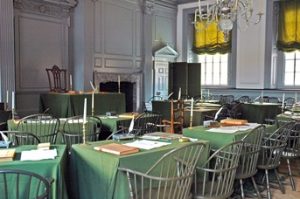
1775 – At Independence Hall in Philadelphia, John Adams proposed to Congress that the men fighting in Boston should be part of a Continental Army led by a general.
The men who had armed themselves and rushed to surround British forces in Boston following the Battle of Lexington and Concord were overwhelmingly from New England, but Adams realized that the military effort would only succeed if the British thought the colonies were united.
To this end, Adams suggested the appointment of a Virginian, George Washington, to command the Continental forces. Adams believed that only Washington, with his talent and character, would unite the colonies better than anyone else.

1805 – The First Barbary War between the North African state of Tripoli and the United States came to an end with the official signing of the Treaty of Peace and Amity.
Pirates from the Barbary States (Tripoli, Algiers, Tunis, and the Sultanate of Morocco) had seized American merchant ships and held the crews for ransom, demanding the U.S. pay $225,000 to the Barbary rulers.
United States President Thomas Jefferson refused to pay.
Consequently, on May 10, 1801, Tripoli declared war on the U.S., not through any formal written documents but in the customary Barbary manner of cutting down the flagstaff in front of the U.S. Consulate.
When Tripoli’s fleet captured the USS Philadelphia in 1803, a small detachment of U.S. Marines stormed the ship and overpowered the Tripolitan sailors before setting fire to the Philadelphia, denying her use by the enemy.
Marine Corps 1st Lieutenant Presley O’Bannon later led a force of eight U.S. Marines and five hundred mercenaries to capture the Tripolitan city of Derna. This was the first time the United States flag was raised in victory on foreign soil.
The action is memorialized in a line of the Marines’ Hymn – “the shores of Tripoli”.
Finally, on this date, Tripoli agreed to return three hundred American prisoners in exchange for one hundred Tripolinos held prisoner and $60,000.
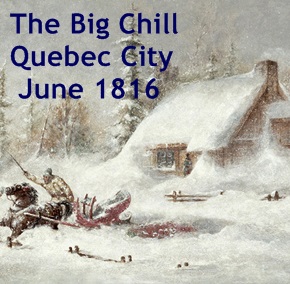
1816 – Snow began falling in the St. Lawrence Valley. Over the next six days, 12 inches of snow was on the ground in Quebec City.
Ice “as thick as a dollar” killed vegetation. Trees shed their leaves. Newborn spring sheep and calves died from the cold. Flocks of migratory birds “dropped down dead in the streets.”
The snowfall was caused by global cooling from the April 10, 1815 explosion of Mount Tambora, an Indonesian volcano, which threw about 25 cubic miles of rock and dust into the stratosphere.
1816 would become known as the year without a summer in North America and Europe, with snow and frost in June, and widespread crop failures.
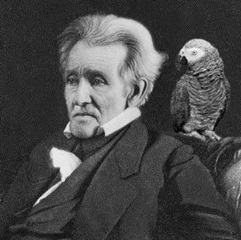
1845 – Andrew Jackson’s African Grey parrot “Poll” was removed from the late president’s funeral at his Tennessee home (The Hermitage) for swearing.
The Rev. William Menefee Norment, who was presiding at the service wrote “Before the sermon and while the crowd was gathering, a wicked parrot that was a household pet got excited and commenced swearing so loud and long as to disturb the people and had to be carried from the house.”
“Old Hickory” was one tough man. Not only was Jackson a war hero, but when a man tried to shoot him at a speaking engagement and the gun misfired, President Jackson, 67 at the time, beat the would-be assassin almost senseless with his walking stick.
Jackson outfitted the White House with a dozen spittoons, fought duels, and was the first president to open the White House for public visits. So it seems natural that his language might have been kind of, um, salty – but what did Poll the parrot say?
No one seems to know the exact words but they clearly weren’t “Poll wants a cracker.”
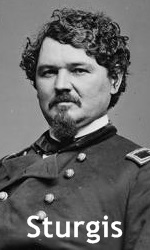

1864 – The Battle of Brice’s Cross Roads was fought near Baldwyn, Mississippi, then part of the Confederate States of America.
A Federal expedition of 4,800 infantry and 3,300 cavalry, under the command of Brigadier-General Samuel D. Sturgis, was defeated by a Confederate force of 3,500 cavalry under the command of Major-General Nathan B. Forrest.
Forrest inflicted heavy casualties on the Federal force, killing over 225 and capturing more than 1,600 prisoners of war, 18 artillery pieces, and wagons loaded with supplies.
Once Sturgis safely reached Memphis, he asked to be relieved of his command.
His request was granted.
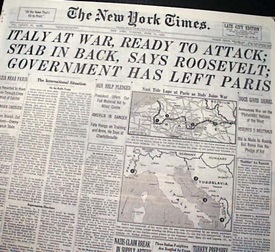
1940 – As the French government fled to Bordeaux during the German invasion, Italian Prime Minister Benito Mussolini, feeling the European conflict would soon end without Italy’s participation, declared war on Britain and France.
As he said to the Army’s Chief-of-Staff, Marshal Badoglio, “I only need a few thousand dead so that I can sit at the peace conference as a man who has fought.”
U.S. President Franklin Roosevelt was outraged. Speaking at a commencement ceremony at the University of Virginia, Roosevelt, who thought he had assurances from the Italian government that they would refrain from entering the war, said, “On this tenth day of June, nineteen hundred and forty, the hand that held the dagger has struck it into the back of its neighbor.”

1942 – There is a village named Lidice in the Czech Republic. It overlooks the original village which, on this date, disappeared from the face of the earth on orders from Adolf Hitler and Heinrich Himmler, in reprisal for the ambush and death of SS-Obergruppenführer Reinhard Heydrich in Prague.
173 men over 15 years of age from the village were executed.
71 women were executed and another 113 were deported to Ravensbrück concentration camp.
7 children considered “sufficiently Aryan” were handed over to SS families.
81 other children were sent to the Chelmno extermination camp where they were gassed to death.
Another 11 men who were not in the village were arrested and executed soon afterwards, along with several others already under arrest.
The village – chosen because its residents were suspected of harboring local resistance partisans and were falsely associated with aiding Heydrich’s assassins – was set on fire and the remains of the buildings destroyed with explosives.
A 100-strong German work party was then sent in to remove all visible remains of the village, re-route the stream running through it and the roads in and out. They then covered the entire area the village had occupied with topsoil.
Nothing in the treatment of Lidice derived from any of the Nazi ethnic policies. Lidice was predominately a Roman Catholic peasant village.
The operation at Lidice was simply a reprisal; a stark demonstration of ruthless power. Lidice was intended to serve as an example so the Germans made no attempt to conceal it, as they had with other massacres.
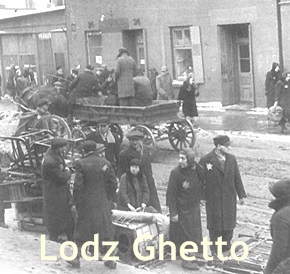
1943 – Heinrich Himmler ordered the final liquidation of the Lodz ghetto in occupied Poland.
Within two weeks, the transfer of 7,000 Jews from the Radegast train station to Chelmno began.
On August 1, 1944 the Warsaw Uprising erupted and the fate of the remaining inhabitants of the Lodz Ghetto was sealed. During the last phase of its existence, some 25,000 inmates were murdered at Chelmno, their bodies burned immediately after death.
As the Allied front approached, German officials decided to deport the remaining Jews to Auschwitz-Birkenau aboard Holocaust trains. 65,000 were gassed.
When the Soviet army entered Lodz on January 19, 1945, only 877 Jews were still alive, 12 of whom were children.
Of the 223,000 Jews in Lodz before the invasion, only a total of 10,000 survived the Holocaust.

1944 – In Distomo, Boeotia, Greece, Waffen-SS troops of the 4th SS Polizei Panzergrenadier Division under the command of SS-Hauptsturmführer Fritz Lautenbach went door to door and massacred Greek civilians as part of “savage reprisals” for a partisan attack upon the unit’s convoy.
A total of 218 men, women and children were killed. SS soldiers bayoneted babies in their cribs, stabbed pregnant women, and beheaded the village priest.
Following the massacre, a Secret Field Police agent accompanying the German forces informed the authorities that, contrary to Lautenbach’s official report, the German troops had come under attack several miles from Distomo and had not been – as Lautenbach claimed – fired upon “with mortars, machine-guns and rifles from the direction of Distomo.”
Lautenbach admitted that he had gone beyond standing orders, but a tribunal found in his favor, holding that he had been motivated, not by negligence or ignorance, but by a sense of responsibility towards his men.

1944 – The village of Oradour-sur-Glane, France was sealed off by a group of soldiers from the Der Führer regiment of the 2nd SS-Panzer Division Das Reich, under the command of Maj. Adolf Diekmann.
They were hell bent on exacting revenge for a purported kidnapping of a Waffen-SS officer by the French Resistance movement.
The women and children were locked in the Catholic Church. The men were divided into groups and led to six barns and sheds.
At the church, troops placed an incendiary device inside. When it was ignited, the women and children who were not overcome by the suffocating black smoke tried to escape through the doors and windows, only to be met with machine-gun fire. 247 women and 205 children died in the brutal attack.
The female students in the photo at the very top of this article all died.
Most of the men inside the barns and sheds were hit by machine gun fire to the lower body and legs. The troops covered them – dead or wounded – with straw and firewood and set the barns on fire. 190 men died.
The soldiers then torched the entire village.
Protests at Diekmann’s unilateral action followed, both from Field Marshal Erwin Rommel and General Walter Gleiniger, German commander in nearby Limoges. Both felt Diekmann had far exceeded his orders.
Sylvester Stadler, commander of the SS Division Das Reich, SS Division Hohenstaufen, ordered a court martial but Diekmann was killed in action on June 29 during the Battle of Normandy.
It was not until 1953 that a trial of twenty-one men took place. Twenty were convicted. Two were sentenced to death and the rest given jail terms.
Amnesties and pardons freed all of those convicted within five years of the trial.
They never rebuilt Oradour. Its ruins (shown above and in the video below) are a memorial. Its martyrdom stands for thousands upon thousands of other martyrdoms in Poland, in Russia, in Burma, in China, in a World at War …

1944 – Joe Nuxhall made his major league debut … at the age of 15.
Baseball teams were scavenging to fill rosters depleted by World War II. Taking up the slack were players coming out of retirement and others coming out of semi-pro leagues.
The Cincinnati Reds (known then as the Redlegs) liked Joe. Left-handed pitcher. Threw an 85 mph fastball. Big for his age – 6-foot-2, 190 pounds. Local kid. Good publicity. Need players. Why not?
On this date, manager Bill McKechnie decided it was a good time to see what the kid – who had just completed his sophomore year in high school – could do.
“Two weeks prior to that, I was pitching against seventh, eighth and ninth-graders, kids 13 and 14 years old,” Nuxhall later recalled. “All of a sudden, I look up and there’s Stan Musial and the likes. It was a scary situation.”
His nerves got the better of him. Nuxhall pitched 2/3 of an inning, allowed 2 hits and walked 5.
After his brief appearance for the Reds, Nuxhall returned to school and did not appear in the major leagues again until 1952 when he returned to Cincinnati for 15 of his 16 major league seasons.
He retired as a pitcher in 1967 and became a Cincinnati Reds radio announcer until 2004. A member of the Cincinnati Reds Hall of Fame, he passed away in 2007.
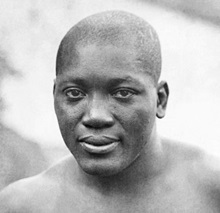
1946 – John Arthur “Jack” Johnson, the first African American world heavyweight boxing champion (1908–1915), died in a car crash near Franklinton, North Carolina after racing angrily from a diner that refused to serve him. He was 68 years old.
Transcending boxing, he became part of the culture and the history of racism in America. His battles against white opponents, in the ring and outside of it, gave rise to “The Great White Hope” play and movie and he came to be lionized as a barrier breaker.
But a criminal conviction from 1913 that most would find abhorrent today – transporting a white woman across state lines – haunted Johnson well after his death and motivated politicians and celebrities for years to advocate for a pardon, however symbolic.
On May 24, 2018, President Donald Trump posthumously pardoned him.
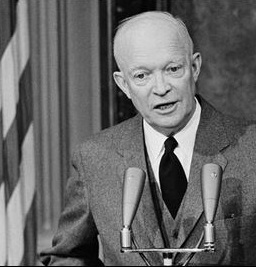
1953 – In a forceful speech, President Dwight D. Eisenhower struck back at critics of his Cold War foreign policy. He insisted that the United States was committed to the worldwide battle against communism and that he would maintain a strong U.S. defense.
Just a few months into his presidency, and with the Korean War still raging, Eisenhower staked out his basic approach to foreign policy with this speech.
He characterized the Cold War as a battle “for the soul of man himself,” and rejected Senator Robert Taft’s suggestion that the United States should pursue a completely independent foreign policy regarding North Korea. Instead, Eisenhower insisted that all free nations had to stand together: “There is no such thing as partial unity.”

1958 – Elvis Presley recorded I Need Your Love Tonight, (Now And Then There’s) A Fool Such As I, and A Big Hunk O’ Love at RCA Studio B in Nashville.
Rock Factoid: The songs were recorded at Elvis’ first and only session during his two years of army service and were conducted just prior to Presley leaving the U.S. for Germany; he would not return to a recording studio until the spring of 1960.
Rock Factoid #2: It was the first session that did not include guitarist Scotty Moore and bassist Bill Black, who had both worked with Elvis since his first recordings for Sam Phillips at the Memphis Recording Service, which later became known as Sun Studios.
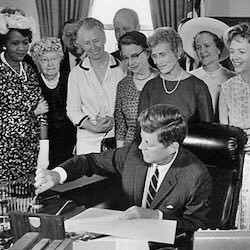
1963 – The Equal Pay Act of 1963, aimed at abolishing wage disparity based on sex, was signed into law by President John F. Kennedy as part of his New Frontier Program.
Significant disparity in how men and women are paid still remains. Women make only $0.79 for every dollar men make in 2020.
What often gets lost in translation is what the uncontrolled wage gap truly represents – women are less likely to hold high-level, high-paying jobs than men.
However, according to the Bureau of Labor statistics, when men and women with the same employment characteristics do similar jobs, women earn $0.98 for every dollar earned by an equivalent man … so they say
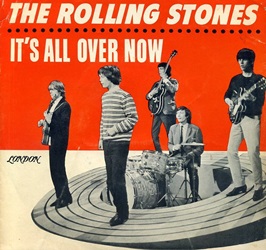
1964 – The Rolling Stones recorded It’s All Over Now at Chess Record Studios in Chicago.
It was first released as a single in the UK, where it peaked at #1 on the UK Singles Chart, giving the group their first chart topping hit. It was the band’s third single released in America, and stayed in the Billboard Hot 100 for ten weeks, peaking at #26.
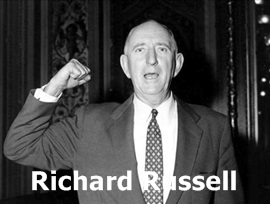
1964 – The United States Senate ended a 75-day filibuster against the Civil Rights Act of 1964, leading to the bill’s passage. The legislation had been originally proposed by President John F. Kennedy in June 1963, but his assassination in November put the success of the bill in the hands of President Lyndon Johnson.
When the bill came before the full Senate for debate on March 30, 1964, the “Southern Bloc” of one Republican and 18 southern Democratic Senators, led by Richard Russell (D-GA), launched a filibuster to prevent its passage.
Said Russell: “We will resist to the bitter end any measure or any movement which would have a tendency to bring about social equality and intermingling and amalgamation of the races in our (Southern) states.”
Finally, on this date, Senators Hubert Humphrey (D-MN), Mike Mansfield (D-MT), Everett Dirksen (R-IL), and Thomas Kuchel (R-CA) introduced legislation that pacified some of the objections.
The compromise bill was weaker than the House version in regard to government power to regulate the conduct of private business, but it was not so weak as to cause the House to reconsider the legislation.
Humphrey, the bill’s manager, concluded he had the 67 votes required at that time to end the debate and end the filibuster. With six wavering senators providing a four-vote victory margin, the final tally stood at 71 to 29.
The bill was signed into law by President Johnson on July 2.
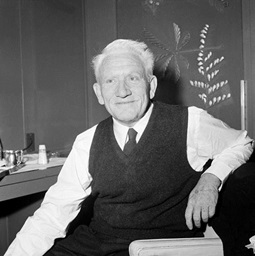
1967 – Actor Spencer Tracy, a nine time nominee for Academy Award for Best Actor (and twice a winner – Captains Courageous and Boys Town), died at the age of 67 from a heart attack. His final film, Guess Who’s Coming to Dinner, was completed just 17 days before his death.
During his career, Tracy appeared in 75 films and developed a reputation among his peers as one of the screen’s greatest actors. Hume Cronyn, who worked with Tracy on The Seventh Cross, admired his co-star’s screen presence: “His method appeared to be as simple as it is difficult to achieve. He appeared to do nothing. He listened, he felt, he said the words without forcing anything.”
Tracy disliked being asked about his technique, or about what advice he would give to others.
“Why do actors think they’re so God damn important? They’re not. Acting is not an important job in the scheme of things. Plumbing is.”

1967 – The Monkees recorded Pleasant Valley Sunday at RCA Victor Studios in Hollywood.
The single peaked at #3 on the Billboard Hot 100 and appeared on the fourth Monkees album, Pisces, Aquarius, Capricorn & Jones Ltd., in November 1967.

1978 – At the Belmont Stakes, Affirmed defeated Alydar by a nose to become racing’s 11th Triple Crown winner. For Alydar, it was the third straight heartbreaking finish in the Triple Crown series.
With each successive race, Alydar narrowed Affirmed’s margin of victory; Affirmed won by 1.5 lengths in the Kentucky Derby, by a neck in the Preakness and by a nose in the Belmont. Alydar has been described as the best horse in the history of Thoroughbred racing never to have won a championship.
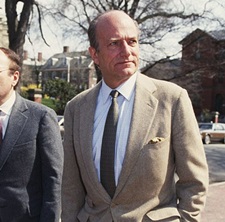
1985 – Claus von Bulow had been found guilty in 1982 and sentenced to 30 years in prison, but on appeal, he was acquitted by a jury on this date in Providence, R.I., on charges he’d tried to murder his heiress wife, Martha “Sunny” von Bulow.
Ten days after von Bülow was acquitted at his second trial, Sunny’s children, Ala and Alexander, filed a $56 million civil lawsuit against him, on their mother’s behalf. On December 24, 1987, this case was settled out of court when von Bülow agreed to divorce her, give up all claims to her fortune, then estimated between $25 million and $40 million, and leave the country.
The story was dramatized in the book and movie, Reversal of Fortune. Sunny von Bülow lived almost 28 years in a persistent vegetative state until her death in a New York nursing home on December 6, 2008.

1987 – Actress Elizabeth Hartman, nominated for the Academy Award for Best Actress for her performance in 1965’s A Patch Of Blue, committed suicide by jumping from her fifth-floor apartment window in Pittsburgh. She was 43.
Hartman suffered from depression most of her adult life. After the early success in her career, her battles with mental health caused fewer roles to come her way. Her last major film was Walking Tall in 1973.
Her final role, as the voice of the mouse heroine, Mrs. Brisby, in the highly-acclaimed animated feature, The Secret of NIMH came in 1982.
One of her last lines in that movie was “Don’t let me fall. I’m afraid of heights.”
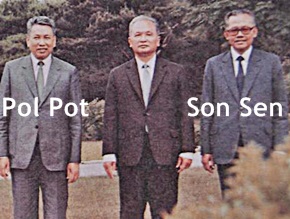
1997 – Gunmen acting on orders from Pol Pot, the Khmer Rouge leader, killed Son Sen, 67, the former Khmer Rouge Defense Minister, along with his powerful wife, Yun Yat, and nine of their relatives. The bodies were then run over by a truck.
Pol Pot, who was under siege by the Cambodian government, believed that Sen was in negotiations with government forces to surrender.
Karma Factoid: Shed no tears for Son Sen. He oversaw the Party’s security apparatus, including the Santebal secret police and the notorious security prison S-21 at Tuol Sleng, and was responsible for ordering the massacre of more than 100,000 people in the Eastern Zone of Cambodia during the last six months of 1978.
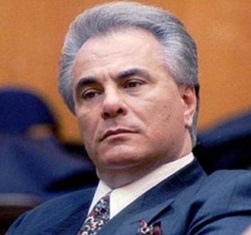
2002 – John Gotti, the former boss of the powerful Gambino crime family in New York City, died of cancer at the United States Medical Center for Federal Prisoners in Springfield, Missouri. He was 61.
At his peak, Gotti was one of the most powerful and dangerous crime bosses in the country. During his era he became widely known for his outspoken personality and flamboyant style, which gained him favor with some of the general public.
While his peers avoided attracting attention, especially from the media, Gotti became known as “The Dapper Don” for his expensive clothes and personality in front of news cameras. He was later given the nickname “The Teflon Don” after three high-profile trials in the 1980s resulted in his acquittal.
After being charged with five murders, conspiracy to commit murder, loansharking, illegal gambling, obstruction of justice, bribery, and tax evasion in 1992, Gotti was finally convicted (on all charges) and was sentenced to life in prison without the possibility of parole.
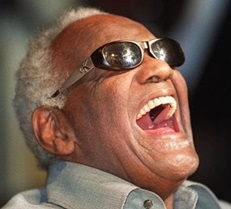
2004 – Music icon Ray Charles died of complications resulting from acute liver disease. He was 73.
During his more than 50 years in show business, Charles – blind from the age of seven – built a career that defied genre, bringing his soulful voice, keyboard prowess and songwriting talent to the pop, country and R&B charts.
Among the first musicians to blend the emotional power of gospel music with secular themes, Charles won 12 Grammys, including a lifetime achievement award in 1987. His songs Hit The Road Jack, What’d I Say and Georgia On My Mind have become American classics.
In 1986, he was inducted into the inaugural class of the Rock and Roll Hall of Fame.
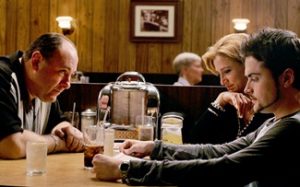
2007 – The 86th and final episode of The Sopranos aired on HBO.
Widely regarded as one of the greatest television series of all time, the fictional drama detailed the life of New Jersey-based, Italian American mobster Tony Soprano.
Despite its often graphic violence – which continued to push the limits of what the viewing public found acceptable – The Sopranos was a major ratings success and won two Peabody Awards. 21 Primetime Emmy Awards, and five Golden Globe Awards.
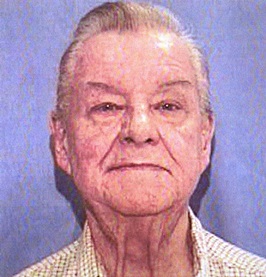
2009 – 88-year-old white supremacist James Wenneker von Brunn entered the United States Holocaust Memorial Museum in Washington, D.C. with a rifle and fatally shot Museum Special Police Officer Stephen Tyrone Johns. Other security guards returned fire, wounding von Brunn, who was apprehended.
He was indicted by a federal grand jury on seven counts, including four which made him eligible for the death penalty. On January 6, 2010, von Brunn died of natural causes while awaiting trial.
A neo-Nazi and Holocaust denier, von Brunn also believed that the September 11 attacks were an “inside job.”

2016 – The incomparable Gordie Howe died at the age of 88.
A 23-time NHL All-Star, “Mr. Hockey” won the Stanley Cup with the Detroit Red Wings four times and won six Hart Trophies as the league’s most valuable player.
Howe finished his NHL career with 1,850 points (801 goals) and was the first player in league history to play 1,500 games. He remains the oldest player to skate in an NHL game (52 years, 11 days).
Compiled by Ray Lemire ©2020 RayLemire.com. / Streamingoldies.com. All Rights Reserved.